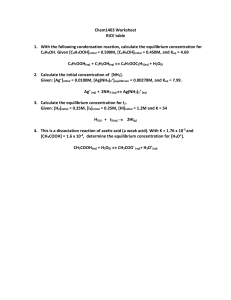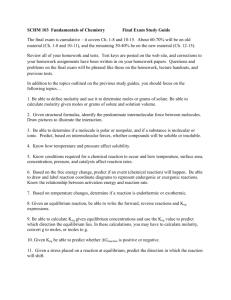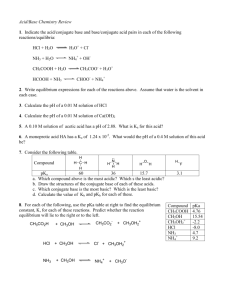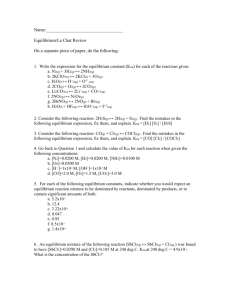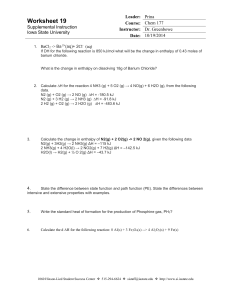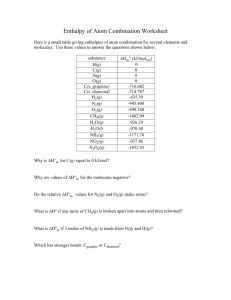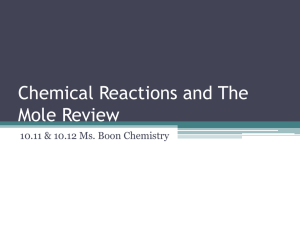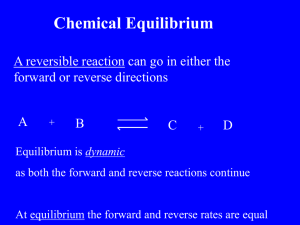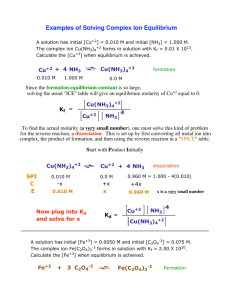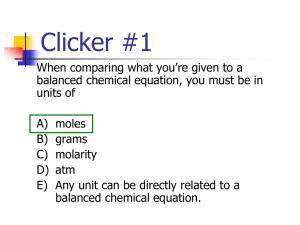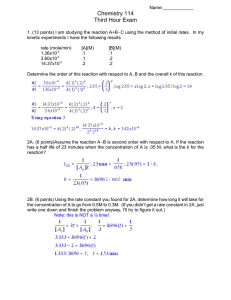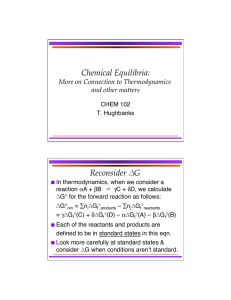CH 117 Session 5 January 31, 2014 *Note that the Equil. Constant
advertisement
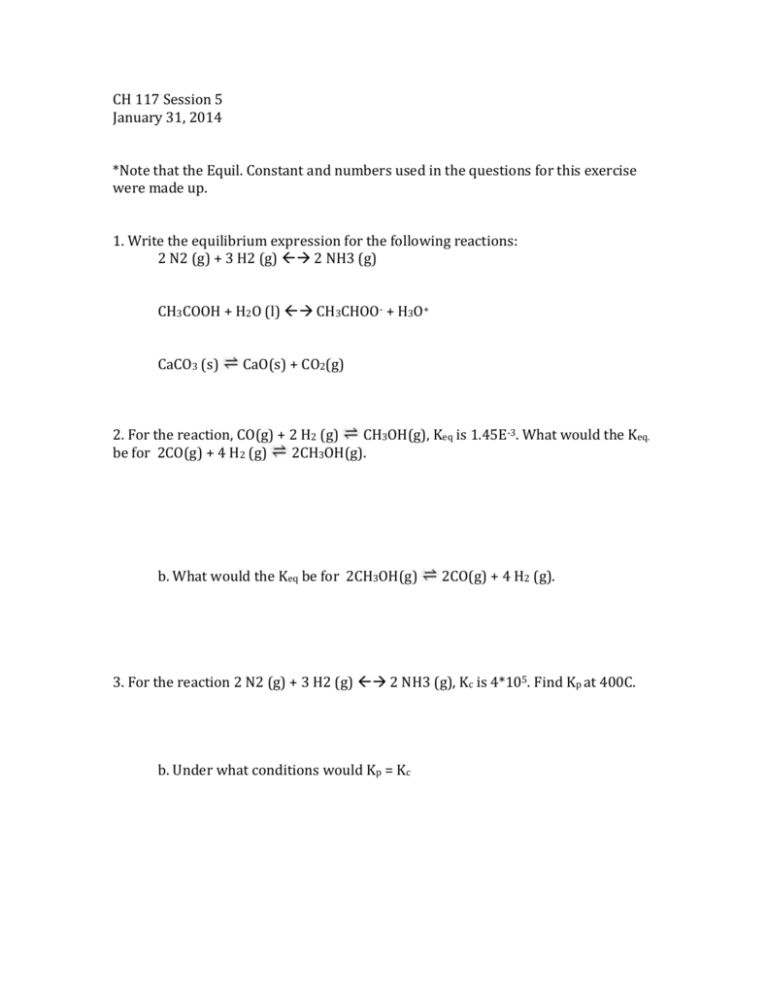
CH 117 Session 5 January 31, 2014 *Note that the Equil. Constant and numbers used in the questions for this exercise were made up. 1. Write the equilibrium expression for the following reactions: 2 N2 (g) + 3 H2 (g) 2 NH3 (g) CH3COOH + H2O (l) CH3CHOO- + H3O+ CaCO3 (s) CaO(s) + CO2(g) 2. For the reaction, CO(g) + 2 H2 (g) CH3OH(g), Keq is 1.45E-3. What would the Keq. be for 2CO(g) + 4 H2 (g) 2CH3OH(g). b. What would the Keq be for 2CH3OH(g) 2CO(g) + 4 H2 (g). 3. For the reaction 2 N2 (g) + 3 H2 (g) 2 NH3 (g), Kc is 4*105. Find Kp at 400C. b. Under what conditions would Kp = Kc 4. True or False: When Kc is greater than 1, reaction is product favored. b. When Qc > Kc, the reaction will shift in which direction. 5. N2(g) + 3H2(g) <--> 2NH3(g). At equilibrium there contains 1.5 moles of N2, 2 moles of H2, and 3 moles of NH3 in a 1.5L container. Find Kc. 6. Suppose you mix 1 M of CO and 1 M of H2 together. What would the equilibrium concentration of all reactant and product be? CO (g) + 2 H2 (g) CH3OH (g) Kc is 1.45E-2 7. Consider the following reaction. CO (g) + 2 H2 (g) CH3OH Kc= 3.01*10-4 If you started with 1 M of CO, 1 M of H2, and 1 M of CH3OH, which direction would the reaction shift? Would the conc. of H2 be greater than 1 M? 8. Consider the reaction 2 N2 (g) + 3 H2 (g) 2 NH3. What happens to Keq when the conc. of NH3 is decreased? b. Which way doe the reaction shift if H2 concentration is decreased? 9. Consider the reaction 2 N2 (g) + 3 H2 (g) 2 NH3 (g). How would reduce volume by half shift the reaction? 10. Consider the reaction 2HI H2 + I2. How would increasing the volume shift the reaction? b. True/False: Kp and Kc are equal. Explain reasoning. 11. Consider the reaction CH3COOH + H2O (l) CH3CHOO- + H3O+. How would the reaction shift if H2O was evaporated so that half the volume disappeared. 12. Consider the reaction H2(g) + Cl2(g) <==> 2HCl(g). ∆H= -55kj/mol. What would happen to Kc if temperature increased? 13. Consider the reaction 2 N2 (g) + 3 H2 (g) 2 NH3 (g). Predict whether entropy increases or decreases when products are formed. b. At higher temperature, which effect determines the position of equilibrium more, energy effect or entropy effect?
